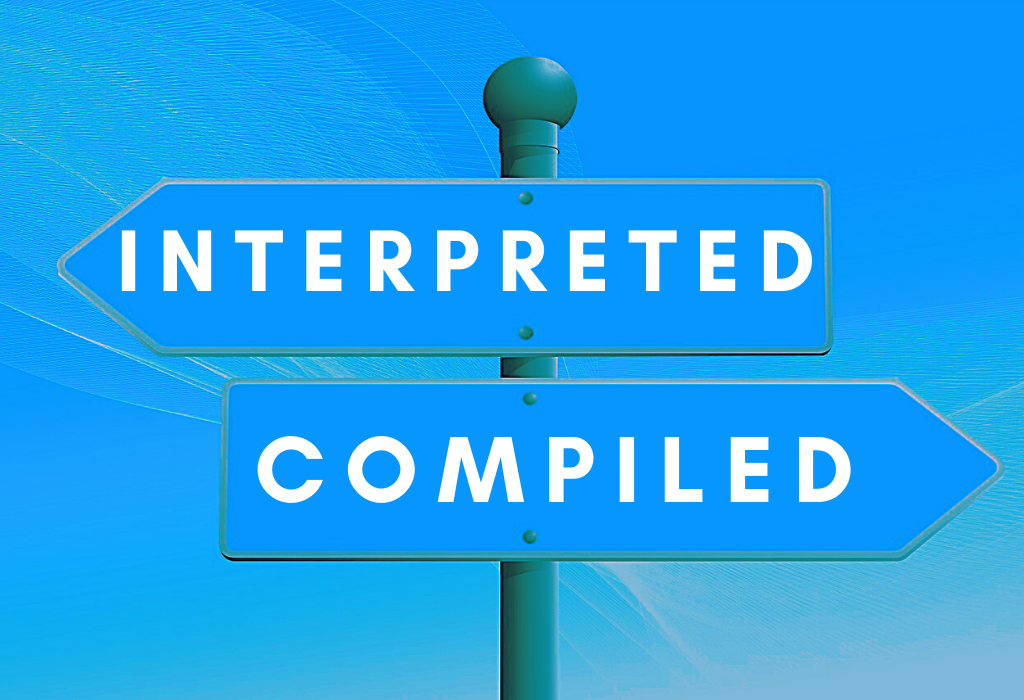If you want to develop your skills as a software developer or a computer programmer, the wide variety of existing programming languages may overwhelm you and make you wonder which one you should invest in learning. Though different languages are useful for writing specific types of code, the C programming language is perhaps the most universal and beneficial.
Learning C could help you develop skills that will benefit you throughout your professional career by simplifying the process of learning additional programming languages in the future.
C is a highly efficient programming language initially developed to write operating systems. It has many features that make it flexible and easy to use. It has low-level access to memory, a clean and concise style, and a simplistic set of keywords. The source code written using C for one system can work effectively on another operating system without experiencing any changes.
C is a compiled programming language. A compiler is a tool that compiles and converts a program into a machine-readable object file. When the compilation gets completed, the linker combines the various object files and produces one executable file that can be used to run the program.


Why Learn C Programming
C and C++ may sound similar, but C++ is a superset of C, so both languages have similar syntax, code structure, and compilation. C and C++ are the oldest and most well-known languages in the family. The C language is procedural and provides no support for objects and classes. And the C++ language is a combination of object-oriented and procedural programming languages.
Most people choose C++. It has more features and applications. For most, learning C++ is easier. C is still relevant, and learning to program in C can improve how you program in C++ as an enhanced version of the C language. C is a Procedural Oriented language. It does not support OOP features such as polymorphism, encapsulation, and inheritance programming. But C++ is both a procedural and an OOP language. It supports OOP features.
C++ is commonly used for graphics-heavy software such as games, photo and video editing apps, and browsers. C is more widely used for embedded devices and OS kernels. C and C++ have been used for diverse purposes like game development, database system software, operating systems, and GUI-based applications. Neither of the languages is a bad choice, and both have realistic career applications.
Coding encourages you to use logic and algorithms to create a program. When facing a new challenge, you must follow a logical approach to solve the issue. Therefore, this is an exercise for your brain to train your logical ability and avail yourself of coding classes for kids or adults.
Top 3 C Programming Certifications You Must Know About
1. CLE – C Certified Entry-Level Programmer Certification
This certification can be starting for beginners who want to have a bright career in the field of software engineering, low-level and middle-level programming, C programming, and related technologies. To pass the test of this certification you must know the following:
♦ the universal concepts of computer programming and developer tools;
♦ the fundamentals of the C language syntax and semantics;
♦ control and evaluations, data aggregates, functions, pointers, and memory management;
♦ writing and debugging simple programs using standard language infrastructure.
2. CLP – C Certified Professional Programmer Certification
C Certified Professional Programmer (CLP) is a certificate that measures the candidates' ability to achieve coding and design tasks related to advanced topics of the C programming language.
To pass the test of this certification you must know the following:
♦ Handling variable number of parameters (<stdarg.h>)
♦ Low level IO (<unistd.h>)
♦ Memory and strings (<string.h> et al.)
♦ Processes and threads
♦ Floats and ints once again (<math.h>, <fenv.h>, <inttypes.h> et al.)
3. CLA – C Programming Language Certified Associate Certification (CLA – C Certified Associate Programmer Certification)
This professional certificate measures your ability to accomplish coding tasks related to the basics of programming in the C programming language, as well as fundamental programming techniques.
To pass the test of this certification you must know the following:
♦ the universal concepts of computer programming and developer tools;
♦ the syntax and semantics of the C language as well as data types offered by the language;
♦ writing programs using standard language infrastructure regardless of the hardware or software platform
C Programming Jobs in 2022
It is easy to learn the basics of C, but you will have to be an expert to build a successful career in C programming. C programming is extensive and primarily used to develop various operating systems and network drivers. It also finds applications in developing other programming languages.
The C programming language is in high demand, despite the emergence of other programming languages. Due to such varied applications, C provides many opportunities for building a successful programming career. If you know C programming or are learning C programming through C language tutorials, here are the career routes you can take.
Software Developer
C software developers are responsible for developing codes that integrate into the operating systems, modules, embedded systems, etc. In addition, c developers design, build and maintain reusable and reliable C++ codes. They also Implement high-quality modules, identify bugs, suggest and implement solutions to existing problems, create high-level designs, etc. So, it is time to find a suitable C program certification course if you want to be a C developer.
Database Administrator
Database administrators use specialized software to store and organize data. Many database organizers work for firms that provide computer design services to their customers or work in industries with extensive databases. For example, educational institutions and finance companies often hire database administrators.
Learn more about coding and programming with coding classes near me on Superprof!

Business system analyst
Business system analysts solve organizational information problems and requirements by analyzing the requirements. They also design computer programs and recommend system controls and protocols. Business system analysts may also define project requirements by identifying milestones, phases, and elements. In addition, they might have to monitor the progress of the projects by tracking activity, publishing progress reports, and recommending actions.
Web Developer
Web developers are the front liners in the age of the internet. The news we watch, the websites we browse, and the gifts we buy are all made possible by web developers. Web developers are responsible for designing and developing websites and website applications. Web Developers use various technologies and programming languages to manage site functionality, implement application features, and integrate security measures.
Programmer Analyst
A programmer analyst defines, develops, tests, analyzes, and maintains new software applications to aid a business or organization. The job includes writing, coding, testing, and analyzing software programs and applications. The analyst will also research, design, document, and modify software applications throughout the production lifecycle. Programmer analysts also have to assess and analyze existing business systems and procedures.
Machine Learning Engineer
Machine learning engineers are in high demand, and it is an excellent route for anyone with programming language knowledge. In the last couple of years, the job posting for machine learning engineers has increased by a solid 330%. So, if you want to be a machine learning engineer, it is time to start with a C language for beginners course. A machine learning engineer builds and trains programs, machines, and other computer systems.
Cloud Engineer
The term cloud engineering covers a lot of different cloud-focused roles. Because cloud engineering requires many areas of expertise, each position is specialized. Cloud architects manage the infrastructure of clouds. They oversee the architecture, configuration, and deployment of applications in the cloud. On the other hand, Cloud software developers build and maintain software features in the cloud. Cloud security engineers build and maintain features to provide security, while cloud network engineers manage and support network infrastructure.
Data Scientist
Data scientists work with big data, gathering and analyzing large sets of structured and unstructured data. A data scientist’s role includes analyzing, processing, and modeling data. Then they interpret the data to create actionable plans for companies. Analytical experts utilize their data and social science skills to find trends and manage data. In addition, data scientists use industry knowledge to uncover solutions to business problems. A data scientist’s job typically involves making sense of unstructured data from social media feeds, smart devices, and emails.

User Experience Developer
Use experience developers, also known as UX developers, plan, design, and develop web applications and pages using code and visual design tools. Companies hire UX developers to appeal to their customers. UX developers meet clients to find out what they want from their web applications, mainly using user interface and experience. UX developers also present web development plans and designs to the client. User Experience developers develop web applications using code and visual designing skills. They also create and design UI (user interface) layouts and web pages to maximize the user experience.
Computer System Engineer
Computer system engineering is one of the most popular engineering fields nowadays. As a result, computer engineering jobs are abundant, and there is space for everyone. So, if you ever want to be a computer system engineer, this is your time to start with some C programming app tutorials.
A computer engineer develops, tests, and evaluates software and personal computers using engineering, computer science, and math analysis. Computer system engineers do not merely engineer computer technology. Instead, they fully comprehend how the technology is used on a broader scale to suit personal and professional use. A system engineer also takes care of the company’s online security, security requirements, data exchange, use of online applications, and employees’ online activity.
Understanding and using C programming gives you an advantage over most other software engineers. It puts you in a group of more advanced and knowledgeable people in the industry. Programming languages generally have a life expectancy of 5-7 years, with some exceptions for low-level languages. If you know C, you can learn new languages much faster than those who do not understand C.
Learn all you need to know with coding classes online here on Superprof!
Summarise with AI:















